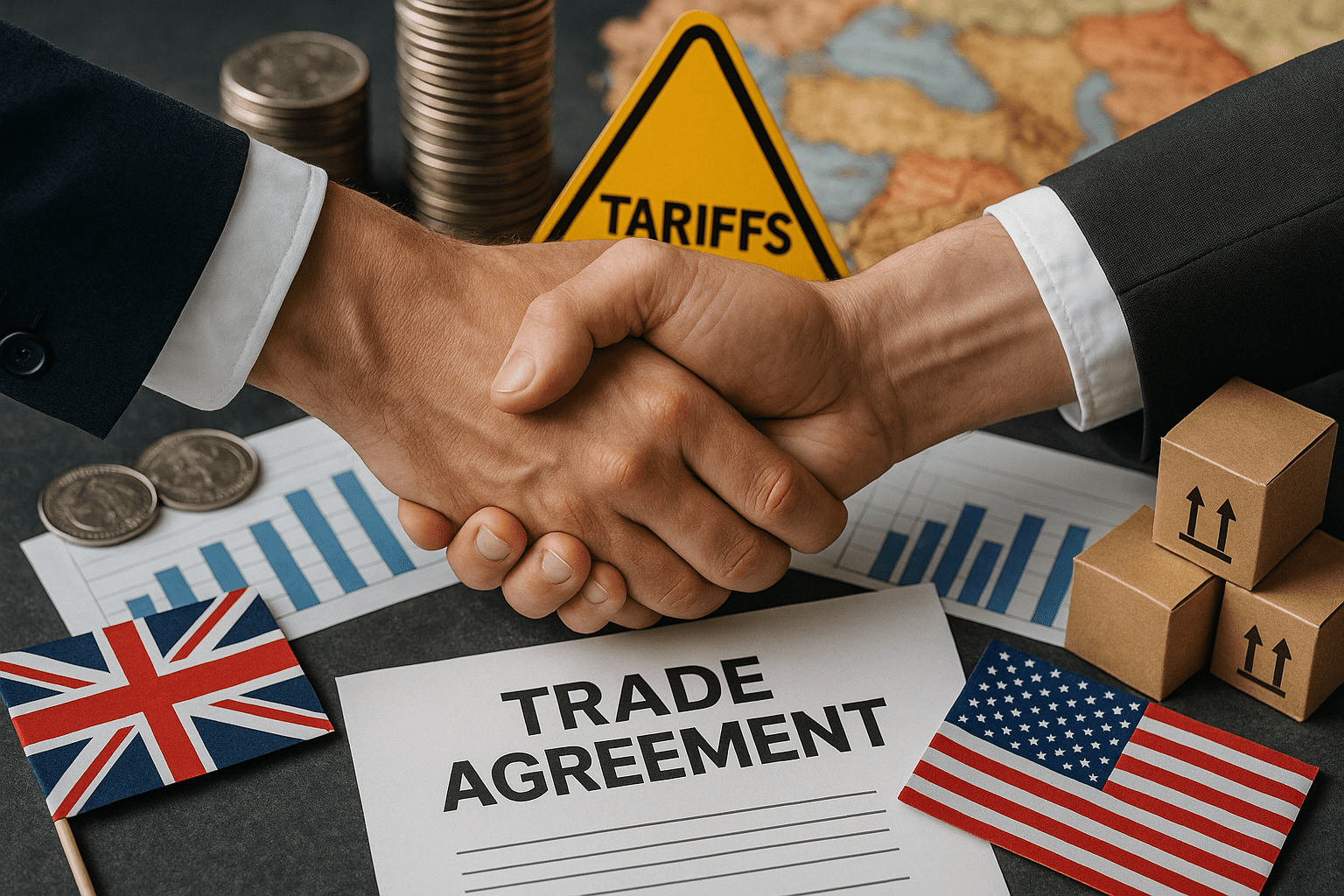(Dated pre deal)
The EU and UK have not yet reached a conclusion regarding the outcome of a Brexit deal, so what can companies do to best prepare for an uncertain eventuality?
As we approach the end of the Brexit transition period, many companies are struggling to prepare themselves amidst the current uncertainty of Brexit and the Coronavirus pandemic.
Many British businesses, along with the UK operations of multinationals, depend heavily on imports from the European Union (EU) and are closely integrated with EU-based suppliers. The EU accounts for 54% of all goods imported into the UK. Trading ties with the EU are of particular importance to UK-based firms in the food and drink, chemicals and automotive sectors. The EU accounts for the great majority of the UK’s trade in the crucial commodities in these sectors’ supply chains.
Whatever the eventual outcome of Brexit, companies can and should see the current high-uncertainty environment as a prompt to rethink their supply chains and make them more resilient. For many firms there is a big need to update supply-chain strategies, bring greater flexibility to their operations and build new structural agility into their organisations.
Over the last few years, many businesses have been preparing to future-proof their supply chain in response to Brexit. But the global disruption caused by Coronavirus (COVID-19) has brought some of the challenges they anticipated into sharp relief, sooner than they might have expected.
Currently, businesses are facing complex supply chain challenges due to COVID-19 as well as an e-commerce Christmas, ranging from extreme sales growth to huge drop-offs in demand, labour availability and cost base challenges. As Brexit trade negotiations continue to unfold, the global trading environment will only increase in complexity, as companies attempt to understand where we stand with trading relationships, get to grips with new technologies, processes and paperwork, as well as remain safe and keep social distancing restrictions up to standard.
Most recently, the status of a potential trade agreement is looking unlikely, but positive. Britain and the EU have pledged to “go the extra mile” to try to secure a post-Brexit trade deal, extending talks after progress on the contentious issue of tariffs. Negotiations were supposed to have ended before Christmas, but are now likely to continue until the last days of December, right up to the transition period deadline.
After a week of hostility between the two sides there have been positive discussions on how to ensure an economic “level playing field” after Brexit. However, Prime Minister Boris Johnson has told his cabinet to prepare for no-deal as he played down any suggestion of a breakthrough, insisting that Britain and the EU remained “very far apart”. The likelihood of a no-deal outcome has become even more apparent as we approach the deadline.
Companies must prepare themselves and adopt new technologies and processes to allow for clear visibility of their supply chains in order to counteract no-deal disruption. Businesses that do have clear visibility on their supply chains are able to model the impact of emerging customer needs on service, cost and operational capabilities. But many businesses have only just started the activities needed to create this level of understanding and knowledge of the additional resilience they need. Furthermore, none of us know the extent to which COVID-19 will have impacted the fundamentals of the businesses by the time we reach the end of the Brexit transition period. Our existing understanding may be out of date by then, as new sourcing models and risk management plans will impact the product flows and the tariffs they are currently exposed to and are continuously evolving every day.
In response to the publication of the National Audit Office report into Brexit preparedness, Elizabeth de Jong, Policy Director at Logistics UK, said: “Logistics UK has been working closely with government for some time to highlight the issues which could affect the smooth passage of goods through the supply chain after the end of the Transition Period. Much has been achieved but there is still much to be done if disruption is to be avoided from 1 January 2021, with detail still required in order for logistics operators to brief and train staff and adopt new processes for declarations, tariff calculation and payments. As always, we stand ready to provide all support necessary to make Brexit a success but need the government to provide us with the information we require, in detail and at pace.”
With COVID-19, Brexit, new technology and other disruptive forces driving change in the way goods move across borders and through the supply chain, logistics has never been more important to UK plc. Logistics UK supports, shapes and stands up for safe and efficient logistics and is the only business group which represents the whole industry, with members from the road, rail, sea and air industries, as well as the buyers of freight services such as retailers and manufacturers whose businesses depend on the efficient movement of goods.
Sarah Laouadi, European Policy Manager at Logistics UK, commented on the EU Transport Contingency Measures announcement on the 10th December, “Today’s announcement of contingency measures for road and air access for logistics operators for six months after the end of the transition period, if adopted in time, will come as a welcome safety net for logistics businesses which have been unable to plan for the future, due to a lack of certainty on whether and how they will be able to operate in three weeks’ time.
“However, six months is not a very long time in business and for Logistics UK members, it is vital that negotiators return to the table to work out a free trade agreement between the UK and EU to ensure the security of their businesses and livelihoods in the years to come.”
So what can we anticipate will cause the most disruption, which needs preparation?
Customs and tariffs
Think through your supply chain footprints so you can be ready for new duties on imports. What new approvals do you need to obtain? How easy will it be to absorb additional costs? Can preferred specialist suppliers be easily replaced? And does this impact decisions on where key activities – like production – are performed? What transaction costs will apply for your cross-border movements of goods? Are pan-EU distribution models exposed to paying duties more than once?
VAT
Be ready for extra costs and administration. At the end of the transition period, sales of goods between the UK and EU will become imports and exports for VAT purposes. With the introduction of postponed accounting, VAT won’t need to be paid on imports into the UK, but it will need to be accounted for. For some EU countries, this will mean accounting for and paying VAT on imports from the UK. How will this impact your cash flow? How will it affect your current systems and processes? And what are the additional administration costs?
Systems and data
Look at the new data and processes required to submit import and export declarations, including information about product origin,and understand how this will be captured and made available to support the physical despatch and receipt of goods. Consider changes to product flow, to mapping to new supply models and ensuring all the commodity codes are correctly used and aligned with product master files.
Shipping
Now, in the final days of the transition period before Brexit and after 10 months of challenging supply chain conditions due to Covid-19, ports are urging freight forwarders, cargo owners and shipping providers to not fear in the build up to the Brexit deadline.
“We’re fully open, there’s no congestion, goods are moving freely in and out of the port and we are doing everything we can to help ports in the south east of the UK. Port of Tyne has extra capacity to further increase our cargo handling volumes and we’re here to keep Britain moving,” says Richard Newton, Commercial Director for Logistics at Port of Tyne.
The Port of Tyne is one of the UK’s deep-sea ports, taking almost 90% of the world’s largest ships and has been working tirelessly to support container movements and minimise the current delays faced by end users in the region. Due to increased volumes of goods arriving for the Christmas festive period and the legacy supply chain impact of Covid-19, in recent weeks the Port of Tyne has seen a significant increase in vessel calls and associated container volumes.
To alleviate the supply chain disruption seen at ports elsewhere in the UK, the Port of Tyne has been supporting shipping lines and feeder operators by allocating additional berths to assist in the evacuation of empty containers to a variety of north European ports for European consumption. This ensures containers are used for loaded export shipments and reduces the number of empty containers shipped back to Asia.
Richard Newton adds: “We are here to help everyone in the supply chain including shipping lines, freight forwarders, end users and hauliers and we want to demonstrate that there has never been a better time to re-configure supply chains and shipping routes into the UK. We’ll handle your containers so that the environmental, cost and efficiency benefits from shipping goods closer to the point of consumption are realised.”
Routing containers into northern ports like the Port of Tyne and then distributing goods down the country is quicker, cheaper, greener and there’s less congestion for hauliers travelling from north to south. “We have excellent road and rail transport links, many years of experience in the container and roll on roll off market and we’re here to help keep Britain moving”, said Richard.
Digitalisation
Even before the crisis, companies that were digitally and analytically mature outperformed competitors that hadn’t built robust digital and analytics capabilities. The Covid-19 crisis has only widened the gap between industry leaders and laggards. For leaders with the ability and willingness to invest, the pandemic has clearly been an accelerator. Many brands have accomplished six years of digital transformation within a few months’ time.
Exponential e-commerce growth as a result of the pandemic has already pushed warehouses to the limits on providing space, but in some ways, this has been a test run for what is to come for Brexit and the new regulations that will be in place come 2021. Retailers don’t want to be caught out again and have started putting preparations in place for a post-Brexit world to ensure adequate supply, warehouse space and consumer satisfaction.
Companies from EU countries trading with the UK will face a significant challenge in terms of new paperwork for customs procedures. Many have never exported outside the EU before so this is new and potentially expensive in terms of time and resources. Companies in the UK trading with Europe and the rest of the world will now have to make customs declarations for the first time as well. Although the retailer can do this themselves, this can also be handled by the carriers. Britain’s logistics industry estimates that 250 million customs declarations a year will be needed for EU trade.
Licences and certifications will now be needed to export specific products including but not limited to animal, plants, food and agricultural products. Businesses in the EU will now also be required to hold licenses and certifications to import specific products from the UK, so it’s important to check that any businesses in the EU you may be dealing with have these ready.
If businesses on either side of this process are missing customs paperwork or do not have the appropriate licenses and certifications in place ahead of the importation or exportation of products, consumers can be left facing delays on receiving items and also customs duties. For the first few months of 2021, consumers dealing with the UK importing from the EU or vice versa are urged to order early to ensure products arrive in a timely manner.
To stay up to date on the latest, trends, innovations, people news and company updates within the global trade and logistics market please register to receive our newsletter here.
Media contact
Rebecca Morpeth Spayne,
Editor, International Trade Magazine
Tel: +44 (0) 1622 823 922
Email: editor@intrademagazine.com





